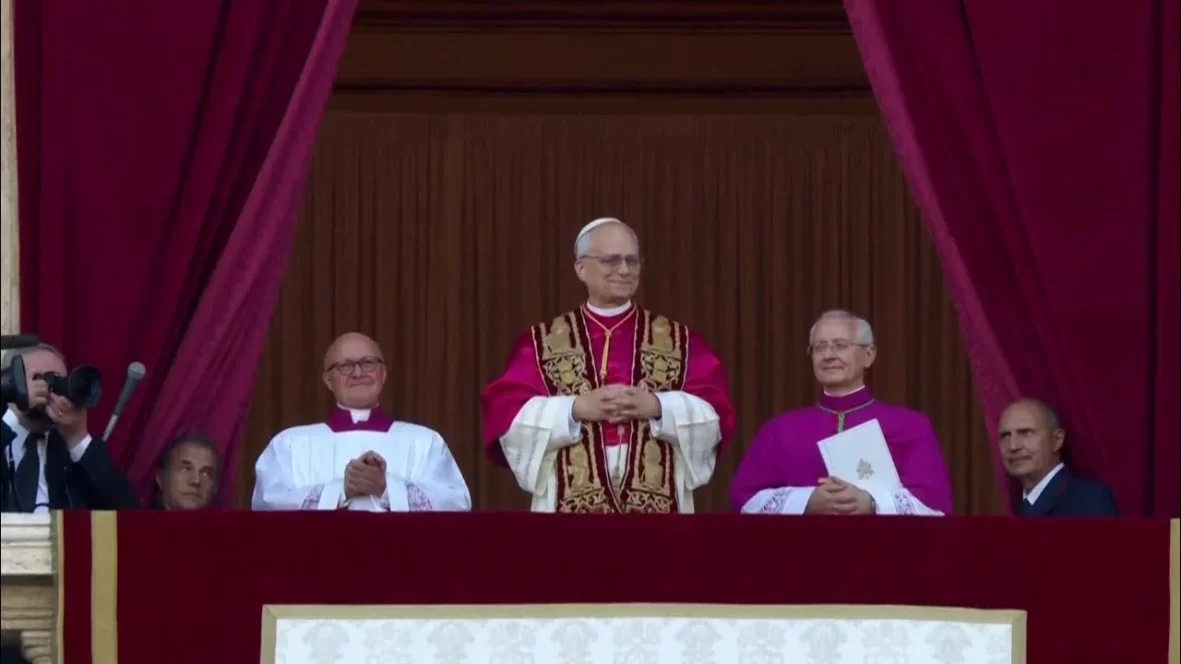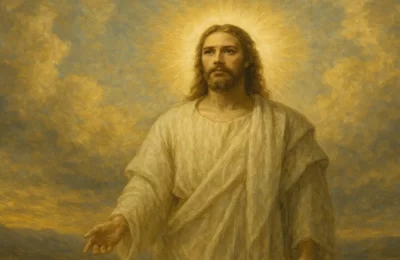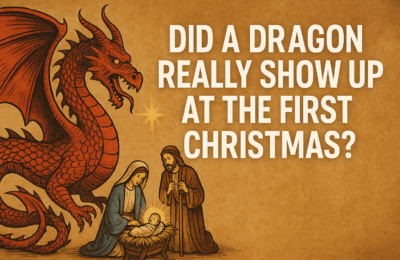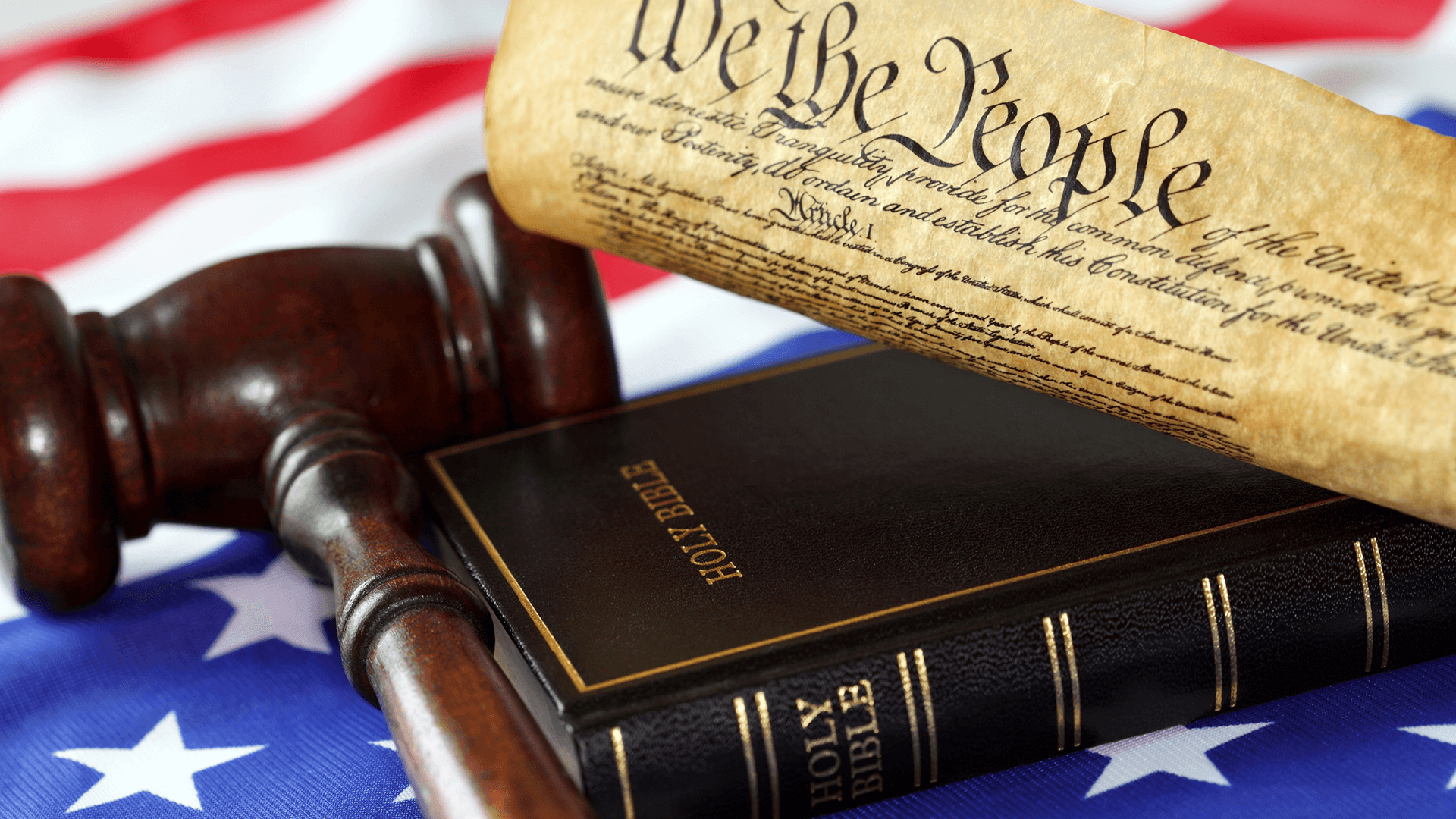A Biblical Look at the New Pope, Prophecy, and Power
Introduction: A Papacy Unlike Any Before
He rebuked a sitting U.S. vice president on Twitter. He retweeted partisan criticism of American immigration policy. He oversaw disputed abuse allegations in Latin America. And then—he became pope.
The election of Robert Francis Prevost as Pope Leo XIV in today (May 8, 2025) marks one of the most unexpected transitions in recent Catholic history. He is the first American-born pontiff, the product of both Midwestern Catholicism and Peruvian mission work, and he brings with him not only pastoral warmth but a complex mix of theological ambiguity and political activism.
In this article, we do not speculate recklessly, nor do we cast judgment on his soul. Rather, we evaluate the election of Pope Leo XIV through the lens of biblical truth, historical discernment, and a Christ-centered worldview. Our goal is to equip believers to think clearly about the implications of this papacy for global Christianity, doctrinal integrity, and the coming collision between cultural accommodation and biblical faith.
“Beloved, do not believe every spirit, but test the spirits to see whether they are from God” (1 John 4:1, LSB).
How We Evaluate: Scripture, Doctrine, and Discernment
As followers of Christ, our standard for truth is not papal tradition, ecclesiastical councils, or mystical prophecy. It is Scripture alone (2 Timothy 3:16–17). Christ is the Head of the Church (Colossians 1:18), and His gospel of grace must never be compromised (Galatians 1:6–9). Every spiritual leader, no matter how revered or visible, must be measured against the clear teaching of God’s Word (1 Timothy 3:1–7).
That means we evaluate Pope Leo XIV on three fronts:
- Biblical theology: Does his teaching and emphasis align with the Word of God?
- Historical orthodoxy: Does he reflect the faith once delivered to the saints (Jude 3)?
- Worldview integrity: Does his leadership interpret cultural pressures through Scripture, or reinterpret Scripture through cultural pressure?
Who Is Pope Leo XIV (Robert Francis Prevost)?
Born in Chicago in 1955, Robert Francis Prevost entered religious life through the Augustinian order and eventually served as a missionary bishop in Peru. His years in Latin America were shaped by pastoral ministry, local politics, and ongoing engagement with issues of poverty, inequality, and indigenous identity. Those who served with him describe him as relational and quietly authoritative, more pragmatic than ideological, and attentive to social need.
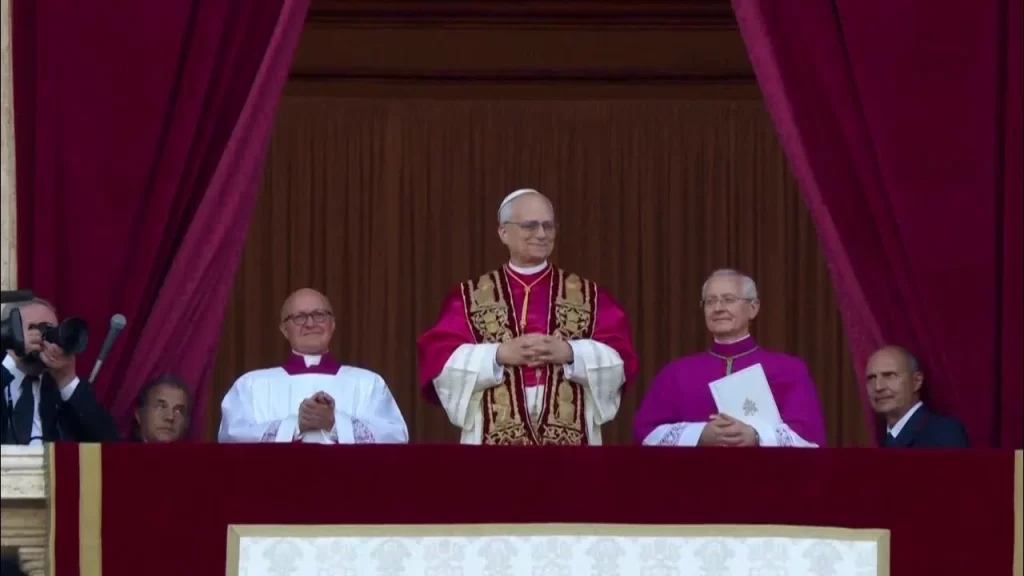
In 2020, Pope Francis appointed him to a powerful Vatican position: Prefect of the Dicastery for Bishops. From this role, Prevost oversaw the appointment of bishops around the world—a task that required both political savvy and theological tact.
His elevation to the papacy in 2025 was rapid and, to many observers, unexpected. Not widely seen as a frontrunner, he nevertheless garnered swift support during the conclave and emerged as the next pontiff on the fourth ballot. His chosen name, Leo XIV, was a clear signal that he intended not merely to continue the spirit of Francis, but to draw on the weight and legacy of the past.
The Significance of the Name “Leo”
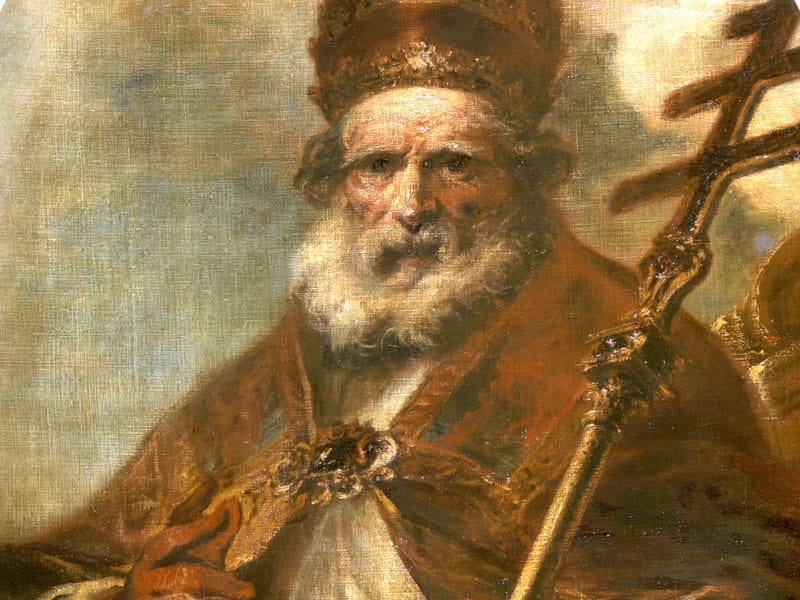
Papal names are never chosen lightly. The name “Leo” carries weight, history, and a message to the world. The first Pope Leo, known as Leo the Great, defended the core doctrines of Christ’s nature at the Council of Chalcedon and famously confronted Attila the Hun at the gates of Rome. His papacy became a symbol of strength, orthodoxy, and divine providence.
More recently, Leo XIII, who served from 1878 to 1903, left his mark by engaging the Church with the emerging modern world. He authored Rerum Novarum, the foundational encyclical on labor and social justice, and championed a revival of Thomistic philosophy. His pontificate sought to navigate between the poles of tradition and progress, faith and reason.
By choosing the name Leo XIV, Prevost steps into that stream—not a reformer in the Francis mold, but a man invoking legacy, authority, and social conscience. Whether this name will become a banner for doctrinal renewal or a symbol of rebranded cultural accommodation remains to be seen.
Unprecedented Aspects of the Election
This papacy has not emerged from tranquil waters. It is shaped by an unusual combination of timing, controversy, and digital-age transparency. For the first time in modern history, a pope was elected after publicly engaging in political disputes just weeks before ascending to the papal throne.
As a cardinal, Robert Prevost rebuked U.S. Vice President J.D. Vance on social media, challenging his remarks on the “order of love” (ordo amoris) and immigration. Prevost wrote:
“Christ did not teach us to rank our love. He taught us to love as He loved.”
(Daily Beast, 2025).
He also retweeted criticism of former President Trump’s border policies, signaling clear moral disapproval and raising questions about ecclesial neutrality in geopolitics (New York Post, 2025).
These public engagements were striking not simply because of their content, but because of the context: they occurred during a period of heightened scrutiny over his past handling of abuse allegations.
In Peru, Prevost was accused of failing to properly investigate claims of sexual abuse by two priests, brought forward by three women (The Pillar, 2025). Additional scrutiny emerged from his earlier decision, as an Augustinian provincial, to allow a priest accused of misconduct to live near a Catholic school in Chicago.
Despite these controversies, the conclave moved quickly. Prevost was elected within four ballots.
Was this efficiency a sign of unity or expediency? Was the name “Leo” chosen to draw attention away from recent scandals, or to invoke a legacy that might strengthen a divided Church? Those questions remain open.
Doctrinal Ambiguities and Theological Concerns
Pope Leo XIV often speaks with warmth, compassion, and pastoral sincerity. Yet beneath that tone lies a pattern of theological imprecision that invites concern.
In his first address, he declared:
“We must build a Church that is always open, always listening, and always ready to receive everyone.”
The heart behind this statement may resonate. But the phrasing echoes a broader trend within progressive Catholicism: inclusivity without clarity. What does it mean to be “open” when the gospel calls all people to repentance (Acts 17:30)? When Jesus welcomed sinners, He also called them to “go and sin no more” (John 8:11).
When asked about gender and sexual identity, Leo XIV responded:
“There is confusion in today’s world, and we must guide people to the truth. But the truth must always come with love and patience.”
Again, tone over truth. Romans 1 and 1 Corinthians 6 speak clearly. Truth is not only loving—it is liberating. When clarity is lost in a cloud of kindness, the gospel is muted.
The pope also affirmed that it was time to acknowledge the indispensable contribution of women in Church governance. While Scripture honors women and elevates their value (Romans 16:1-2), it also establishes roles within the Church that reflect divine order (1 Timothy 2:12). Affirmation must not come at the cost of biblical structure.
Politics, Justice, and the Gospel
Leo XIV’s political activism did not end with Twitter rebukes. He has consistently championed causes related to global justice, immigration, and economic reform. His emphasis on the marginalized echoes the pastoral heart of Christ.
But in doing so, his theology risks becoming horizontal without being vertical.
“We cannot be a Church of Christ if we are not a Church of the poor.”
That statement, while noble, demands precision. The Church is called to serve the poor (James 1:27), but it is first and foremost called to proclaim Christ crucified (1 Corinthians 2:2). Without the gospel, justice becomes moral activism. And moral activism, detached from regeneration, cannot save.
Prophecy and the Pope: The St. Malachy Connection
For centuries, some have looked to the Prophecy of the Popes attributed to St. Malachy, a 12th-century Irish archbishop, which lists 112 cryptic descriptions of future popes. Many believed Pope Francis (described as “Petrus Romanus”) was the final one.
With Leo XIV’s election, that assumption is disrupted. Does this invalidate the prophecy? Or does it merely expose its human origins?
Most scholars argue the prophecy was likely a 16th-century fabrication, designed to influence conclave outcomes during a turbulent time in Church politics (O’Brien, 2003). The mottos prior to 1595 are remarkably accurate; those after appear generic.
From a biblical standpoint, this moment is a reminder that our trust must remain in Scripture alone. God’s prophetic Word is clear, authoritative, and sufficient (2 Peter 1:19-21). We need not look to mystical lists when the Bible already tells us what to expect: apostasy, tribulation, and the return of Christ (2 Thessalonians 2:3).
A Biblical Response for Today
As this new papacy begins, believers must respond not with fear, but with clarity.
We must:
- Discern wisely (1 Thessalonians 5:21).
- Hold fast to sound doctrine (Titus 1:9).
- Refuse to confuse social compassion with gospel transformation (Romans 12:2).
- Pray for leaders while placing our ultimate trust in Christ (1 Timothy 2:1-4).
This moment is not about Catholicism alone. It reflects the wider drift of the visible Church—a drift toward applause, ambiguity, and cultural accommodation. Now more than ever, we need truth that anchors, doctrine that convicts, and hope that endures.
Conclusion: Watch, Wait, and Witness
Pope Leo XIV’s rise is not merely a Catholic story. It is part of the broader narrative of how Christianity will be tested, reshaped, and redefined in the years ahead. For those of us who hold fast to biblical authority, the challenge is clear: be watchful, be faithful, and be rooted in Christ.
“See to it that no one takes you captive through philosophy and empty deceit, according to human tradition… but according to Christ” (Colossians 2:8, LSB).
References
Daily Beast. (2025). New Pope Leo XIV bashed JD Vance on Twitter just weeks ago. Retrieved from https://www.thedailybeast.com/new-pope-leo–xiv-bashed-jd-vance-on-twitter-just-weeks-ago/
New York Post. (2025). New Pope Leo XIV spent years retweeting criticism of Trump policies. Retrieved from https://nypost.com/2025/05/08/us-news/new-pope-leo-xiv-spent-years-retweeting-criticism-of-trump-policies/
The Pillar. (2025). Cardinal Prevost never investigated abuse allegations, say victims. Retrieved from https://www.pillarcatholic.com/p/cardinal-prevost-never-investigated
O’Brien, J. (2003). The Prophecy of the Popes: Saint Malachy and the end-times. Ignatius Press.



